MLL2 is required in oocytes for bulk histone 3 lysine 4 trimethylation and transcriptional silencing
- PMID: 20808952
- PMCID: PMC2923083
- DOI: 10.1371/journal.pbio.1000453
MLL2 is required in oocytes for bulk histone 3 lysine 4 trimethylation and transcriptional silencing
Abstract
During gametogenesis and pre-implantation development, the mammalian epigenome is reprogrammed to establish pluripotency in the epiblast. Here we show that the histone 3 lysine 4 (H3K4) methyltransferase, MLL2, controls most of the promoter-specific chromatin modification, H3K4me3, during oogenesis and early development. Using conditional knockout mutagenesis and a hypomorph model, we show that Mll2 deficiency in oocytes results in anovulation and oocyte death, with increased transcription of p53, apoptotic factors, and Iap elements. MLL2 is required for (1) bulk H3K4me3 but not H3K4me1, indicating that MLL2 controls most promoters but monomethylation is regulated by a different H3K4 methyltransferase; (2) the global transcriptional silencing that preceeds resumption of meiosis but not for the concomitant nuclear reorganization into the surrounded nucleolus (SN) chromatin configuration; (3) oocyte survival; and (4) normal zygotic genome activation. These results reveal that MLL2 is autonomously required in oocytes for fertility and imply that MLL2 contributes to the epigenetic reprogramming that takes place before fertilization. We propose that once this task has been accomplished, MLL2 is not required until gastrulation and that other methyltransferases are responsible for bulk H3K4me3, thereby revealing an unexpected epigenetic control switch amongst the H3K4 methyltransferases during development.
Conflict of interest statement
The authors have declared that no competing interests exist.
Figures
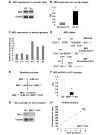
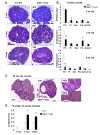


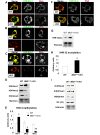
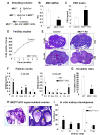

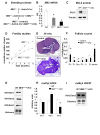
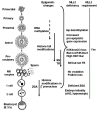
References
-
- De La Fuente R, Viveiros M. M, Burns K. H, Adashi E. Y, Matzuk M. M, et al. Major chromatin remodeling in the germinal vesicle (GV) of mammalian oocytes is dispensable for global transcriptional silencing but required for centromeric heterochromatin function. Dev Biol. 2004;275:447–458. - PubMed
-
- Farthing C. R, Ficz G, Ng R. K, Chan C. F, Andrews S, et al. Global mapping of DNA methylation in mouse promoters reveals epigenetic reprogramming of pluripotency genes. PLoS Genet. 2008;4:e1000116. doi: 10.1371/journal.pbio.1000116. - DOI - PMC - PubMed
-
- Nichols J, Smith A. Naive and primed pluripotent states. Cell Stem Cell. 2009;4:487–492. - PubMed
Publication types
MeSH terms
Substances
Grants and funding
LinkOut - more resources
Full Text Sources
Other Literature Sources
Molecular Biology Databases
Research Materials
Miscellaneous

